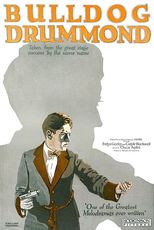
Death rays, invasions, and bombs, oh my! The plots foiled by fictional spies in the early twentieth century were outlandish enough to inspire numerous spoofs, from Agatha Christie to Dr. Strangelove. From Kipling’s “Great Game” to John Buchan’s 39 Steps, the rise of espionage in fiction mirrored British anxieties about the world and its place in it. Idealism and social criticism were often closely linked, with unlikely heroes (and sometimes heroines) being plucked from obscurity to save the day… and sometimes the world. This podcast episode discusses how the tropes of British spy fiction were formed and transcended in the first half of the twentieth century.
Podcaster: Lucy
Further Reading
Arnold E. Davidson, “The Sign of Conrad’s Secret Agent.” College Literature 8 (1981): 33-41. Christopher Harvie, “Second Thoughts of a Scotsman on the Make: Politics, Nationalism, and Myth in John Buchan.” The Scottish Historical Review 70 (1991): 31-54. A. Michael Matin, “‘We Aren’t German Slaves Here, Thank God’: Conrad’s Transposed Nationalism and British Literature of Espionage and Invasion.” Journal of Modern Literature 21 (1997/98): 251-280. Victoria Nelson, “Introduction,” in: Rogue Male, by Geoffrey Household, NYRB Classics, (2007). LeRoy Panek, The Special Branch: The British Spy Novel, 1890-1980, Bowling Green University Popular Press, (1981). Myron J. Smith, Cloak and Dagger: An Annotated Guide to Spy Thrillers, Greenwood Press, (1995). Novels (from the 1890s-1930s) Anthony Hope Hopkins, The Prisoner of Zenda Rudyard Kipling, Kim Joseph Conrad, The Secret Agent John Buchan, The 39 Steps Agatha Christie, N or M? Sapper, Bulldog Drummond Dorothy L. Sayers, Have His Carcase Eric Ambler, Journey Into Fear Music: "Evening Melodrama" by Kevin Macleod (www.incompetech.com)
6 Comments
9/2/2016 07:33:48 pm
So happy that you reviewed spy novels of the 19th & 20th centuries: a great genera that doesn't get enough attention (IMHO)
Reply
Lucy
11/4/2016 12:03:46 am
Thanks, Kam! :) I'm open to further-further reading recs any time.
Reply
Geraldine Halpin
11/14/2016 11:25:08 am
Hi Lucy, you mentioned you're interested in gender issues in books, well Dorothy L. Sayers' other novels are well worth reading, specifically those which feature Harriet Vane - whom you referred to as Wimsey's ally. Gaudy Night in particular deals with the freedoms, restrictions and expectations of women in the inter war years. Definitely worth a read.
Reply
Lucy
9/1/2017 05:34:42 pm
Apologies, I've only just seen this! Gaudy Night has long been a favorite of mine, and Liz and I explore questions of women's roles as reflected in mystery fiction in another of our episodes. :)
Reply
Wesley
5/25/2018 12:02:52 pm
Lucy, this was just terrific ! You have a real gift :)
Reply
Leave a Reply. |
Site Map |
© 2013-2024 Footnoting History. All rights reserved.
Footnoting History and the Footnoting History logo
are trademarks of Footnoting History, NY. Footnoting History operates under a SAG-AFTRA Micro-Monetized Podcast Agreement. |

